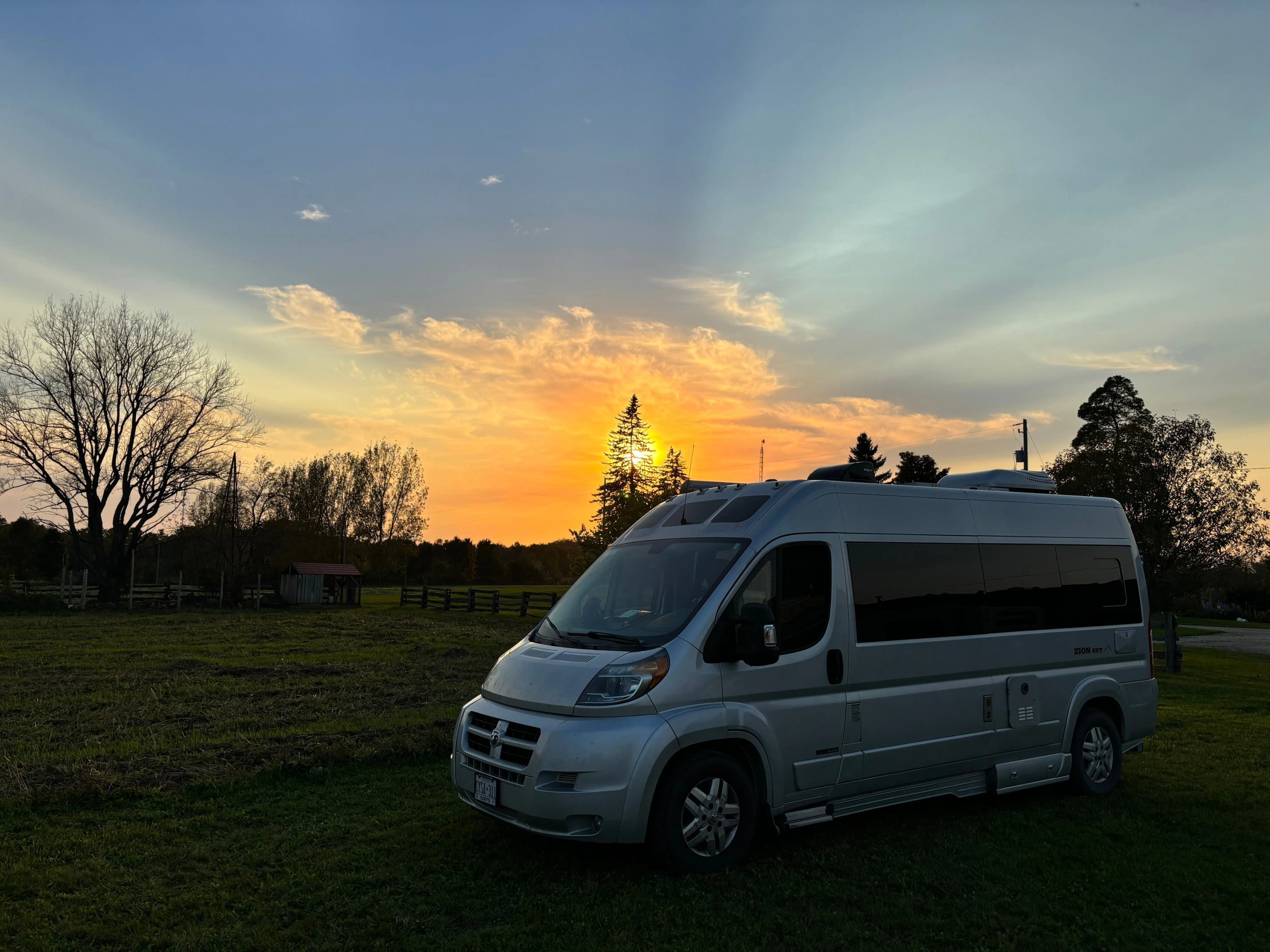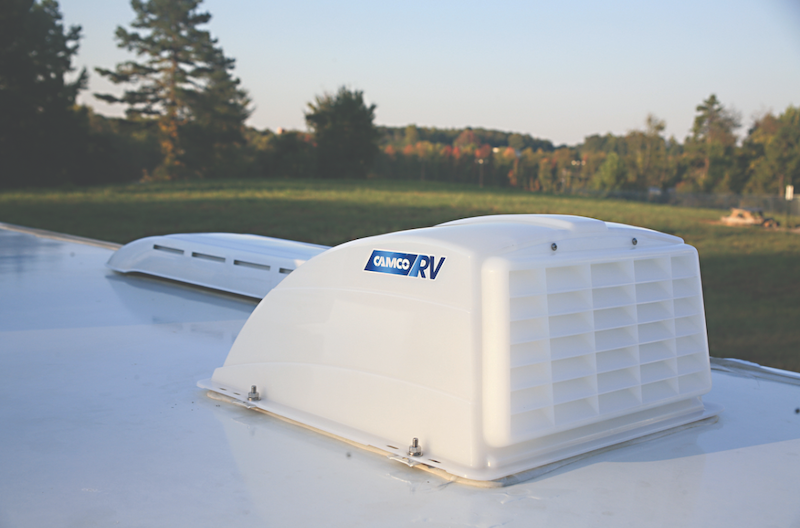Top 9 Reasons To Buy a Fifth Wheel for Full-Time RV Living
By Jack Huber
We planned our escape from the working world to the full-time RV lifestyle for almost ten years. During that time, we had to decide on many things, the foremost of which was what type of RV to live in. There were a lot of choices – Class A, Class B, and Class C motorhomes, fifth wheel trailers, tow-behind trailers, hybrid trailers, tent campers, and others – and there are travelers that are happy with each of these options.
Our first purchase was a used 32’ tow-behind trailer and we quickly discovered that we were going to feel cramped if we moved into it full-time. We revisited our priorities and the choices and decided on a 31’ fifth wheel. Here are some of the deciding factors, in no particular order:
1. Superior towing
Compared to tow-behind trailers the overall vehicle length of the same length fifth wheel is about 8’ shorter. The stability of the fifth wheel is far better than other trailers, with the king-pin and hitch in the center of the truck bed causing much less sway from speed, wind, or passing semis than traditional pull-behind trailers.
2. Living space
After comparing fifth wheels to all three classes of motorhomes, the amount of living space is quite impressive compared to motorhomes and tow-behinds. Having 4’-wide opposing slides gives us almost 16’ of floor space in the rear of the rig, quite a bit more essential space than most motorhomes and almost all pull-behind trailers. Also, fifth wheels have much more headroom inside than pull-behinds.
3. More camping stability
The additional weight and bulk of Class A and Class C motorhomes, fifth wheels, and the largest tow-behind trailers makes for more stability while sitting in a camping site. Storms and heavy wind can pick up quickly and smaller rigs can be far more affected. We have weathered 50-60 mph windstorms more than a few times in our fifth wheel.
4. Basement storage
Although we often have basement envy when we see the storage capacity of nearby Class A motorhomes, other classes of motorhomes and most trailers can’t hold a candle to the basement storage of most fifth wheel models. Let’s not even mention “Airstream” and “storage” in the same breath.
5. No toad
Motorhome owners need toads, or “towed-s” – small vehicles towed behind a motorhome to use as a local or touring cars when entrenched in a campground site. Without a toad, these travelers would be stuck at their RV, dependent upon other campers or driving a separate car when moving from park to park. Fifth wheels have a touring vehicle available at all times – their towing truck.
6. Purchase Price
Although one can find new Class A or B motorhomes as low as $50,000, the average price of a Class A set up for full-time living is closer to $150,000-$250,000, plus the cost of a toad and towing system. Class B’s come in just slightly less, ranging from $125K to $165K, on average, plus the toad. Fifth wheel pricing is much lower, at $35K to $75K, but you have to also price a pickup truck, easily another $50K to $80K. Still, with the necessity of a toad, the fifth wheel is more reasonable.
7. Cost of Operation
Assuming that the towing pickup is appropriately sized and fueled for its fifth wheel, gas (or diesel) mileage is typically much higher than a Class A or Class C motorhome for the same driving conditions, but lower than a Class B or van conversion. Also, maintaining a pickup is much more economical than a motorhome, including oil changes and other typical maintenance services. Similarly, drive train repairs are also more costly in a motorhome.
8. Access to smaller campgrounds
Tow-behind and fifth wheel trailer owners will tell you one of the big advantages they have over larger motorhomes is access to state and federal parks and campgrounds, and ease of parking in many tightly-spaced RV resorts.
9. Major vehicle issues cause less living consequences
Even if you have a toad, the cost and duration of a major repair in a Class A or Class C motorhome is usually significantly greater than other RV types. Without a motor, a fifth wheel or tow-behind trailer has much less to go wrong, and when things do break, the repairs aren’t as serious and are more preventable.
As an honorary mention, motorhomes typically don’t have toy-hauler options. Like I mentioned, each RV type has its fans and detractors. These are the reasons we purchased a fifth wheel and after a year of living in it full-time, we don’t regret our choice.
Learn More About Boondockers Welcome
We promise not to spam you!










nice post